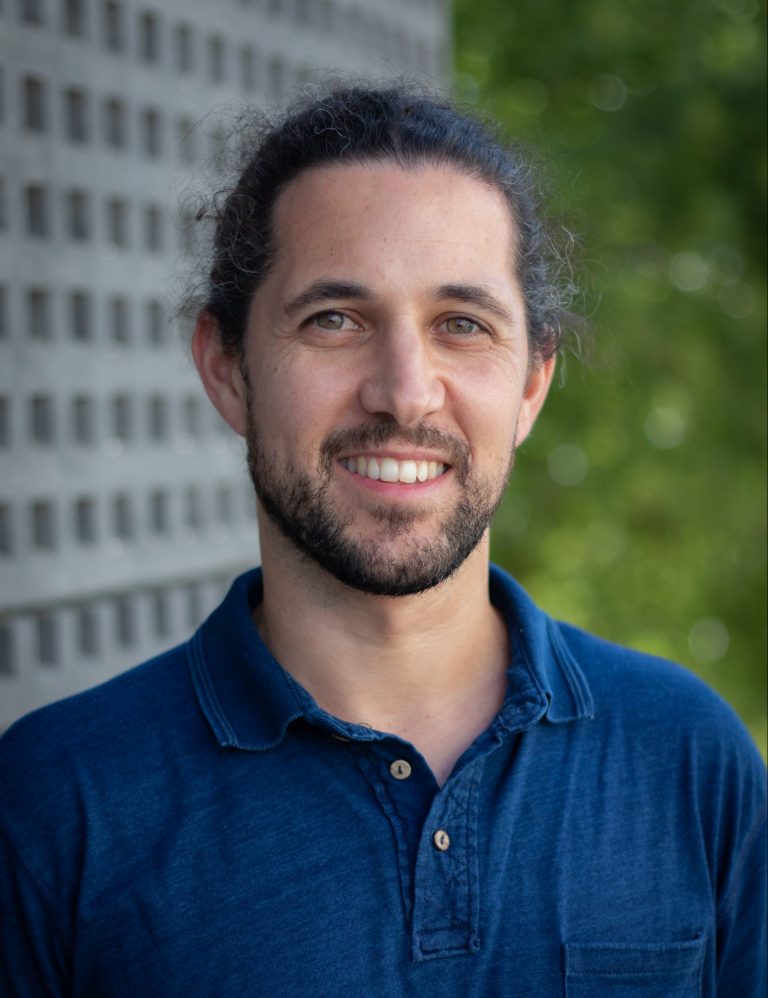
João Valente Duarte
Beneficiary of the Short-term Research Internships at the University of Texas at Austin
| Role | Doctorate Researcher |
| Affiliation Institution | CIBIT – Institute of Nuclear Sciences Applied to Health, University of Coimbra |
| Host Institution | Biomedical Research Center, the University of Texas at Austin |
| Program Area | Medical Physics |
Short Bio
João Duarte obtained an integrated MSc degree in Biomedical Engineering from the University of Coimbra, Portugal, during which he carried the MSc thesis at the University of Pavia, Italy, in the application of machine learning to genetic data. In 2016 he obtained a PhD in Health Sciences from the University of Coimbra, focused on the application of brain functional magnetic resonance imaging (fMRI) and electroencephalography (EEG) to cognitive neuroscience.
During the last 6 years as Junior Researcher in the Faculty of Medicine of the University of Coimbra (FMUC) and the Institute of Nuclear Sciences Applied to Health (ICNAS), João Duarte has worked in several multidisciplinary projects using non-invasive medical imaging techniques (MRI, EEG, OCT and fNIRS) applied to both basic and translational neuroscience, namely in the development of brain imaging biomarkers in clinical populations (e.g., genetic spinocerebellar ataxia type 3, type 2 diabetes, neurofibromatosis type 1, schizophrenia, bipolar disorder). Currently is particularly interested in the combination of multimodal approaches (structural MRI, simultaneous EEG-fMRI, diffusion MRI) to achieve the highest sensitivity and specificity to early brain structural and functional damage in neurological and psychiatric diseases. He was recently awarded competitive individual and project funding as Principal Investigator to develop new neuroimaging biomarkers of connectivity in patients with Multiple Sclerosis. He is an integrated member of the Coimbra Institute for Biomedical Imaging and Translational Research (CIBIT), the research center hosted at ICNAS, in which he is leader of strategic workpackage of Radiomics, and a member of CIBIT’s Executive Board.
Work description
“Advanced MRI techniques such as diffusion-tensor (dMRI) or resting-state functional MRI (rs-fMRI) can be used to study the structural and functional connections between distinct brain regions and how these underpin neural networks. However, brain connectivity measures are likely affected by biases introduced during MRI data acquisition and/or processing. Furthermore, a key challenge to the translation of imaging biomarkers to real-word clinical practice is the implementation and integration of advanced imaging techniques in clinically oriented equipment. My work plan for the short-term internship at the BIC at UT Austin includes getting advanced training in MRI physics, i) to understand and quantify the potential sources of bias in commonly used dMRI and rs-fMRI settings, ii) to implement a quality assessment procedure within structural and functional brain connectivity processing pipelines, and iii) to investigate how to account for this bias. With the support of a Short-Term Research Internship in Medical Physics at UT Austin, I will be able to reliably estimate useful connectivity measures applicable in real-world scenario.”
– João Valente Duarte
Expectactions about the Short-term Research Internship
“The Biomedical Imaging Center (BIC) at UT Austin is a state-of-the-art biomedical imaging center that supports human research and accommodates both independent and assisted use of human MRI. The staff is extraordinarily qualified; my expectation is to get know-how and training in advanced MR methods to investigate physiology and metabolism in humans, as well as to develop expertise in optimizing techniques to mitigate image artifacts and improve image quality and consistency, which are crucial in clinical human imaging research. Furthermore, analogously to the amazing developments in network neuroscience, I am highly motivated to develop a wide network of contacts, namely with leading experts doing research at the BIC in areas of interest for me, such as multiple sclerosis, bipolar disorder and schizophrenia. I believe the internship at UT Austin will be a unique opportunity to get in touch with state-of-the-art tools on MRI and that the experience at BIC will enrich my understanding of good research practices and open doors for possible future collaborations.”
– João Valente Duarte
Stay tuned for more updates coming soon!
Douglas Befroy
Biomedical Imaging Center, UT Austin

